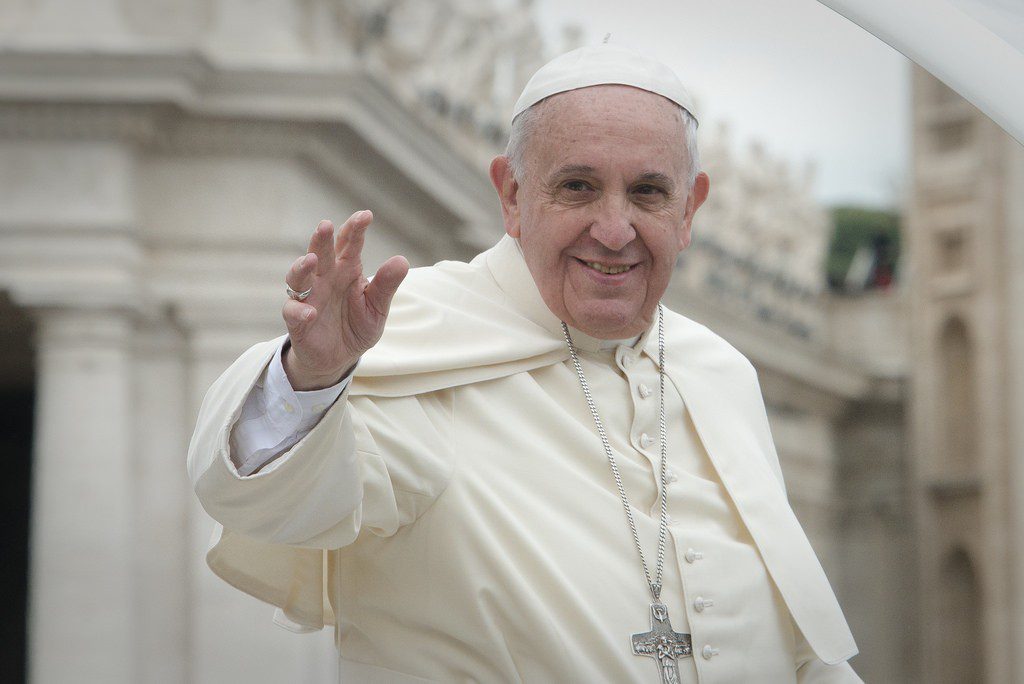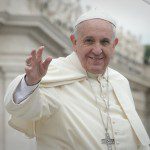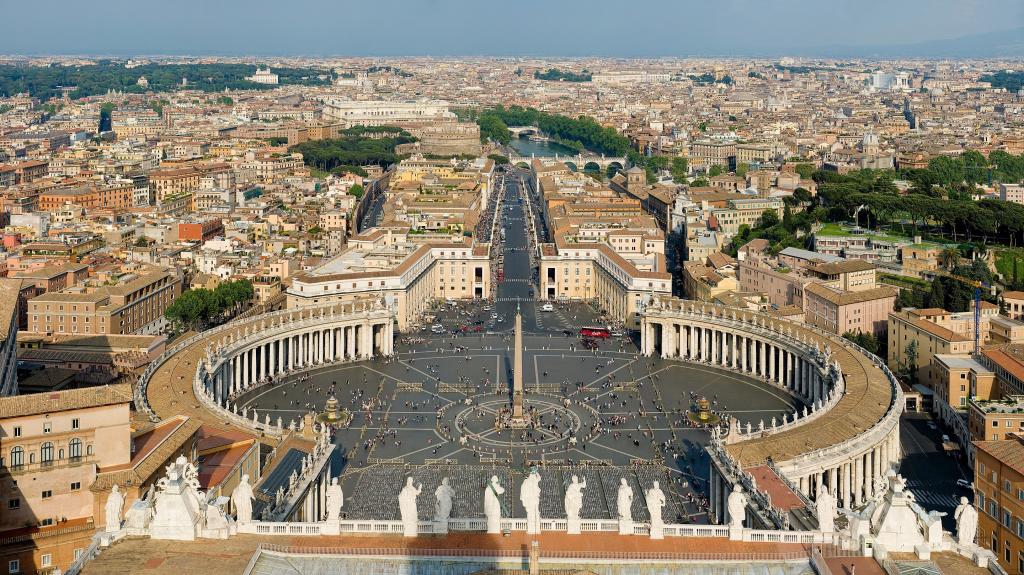
So I’m trying to stay away from Trump-news, knowing that (a) I personally cannot play a real role in how it plays out and that (b) I lack the background knowledge (let alone all the new developments) to reasonably assess the correct outcome of the impeachment drama or whatever the current scandal of the day is.
In the same way, I’m watching all manner of reports on the Amazon Synod and trying to hold back judgement. There was a lot of speculation about the Youth Synod round about a year ago: that in order to minister to the youth, the Pope would declare LBGTism to be just fine after all, for example. But nothing much ever really came of it. (I wrote about it midway through, and apparently never followed up because there was nothing to say – just a bland document of no apparent value.)
So maybe this one will be the same.
But ignoring it is getting harder and harder. “We all worship the same God” is not always true — not when it’s a matter of a fertility god(ess) or a worship of Mother Earth, either in the form of a literal idol or in an idolization of the environment, promoting a purity of nondevelopment as one’s core belief, over and above Christian doctrine which falls by the wayside.
The synod also appears to be wholly indifferent to the question of “why are Pentecostals eating our collective lunch?” when it comes to conversions in the Amazon region, and instead looks to be using the synod to address its favored causes of environmentalism, and ordination of married men and a deacon-like status for women.
As to the ordination of married men: the present claim, by a bishop who had been in ministry in Amazonian Brazil, is this:
“I’m saying this with great sincerity – there is no other option,” Bishop Erwin Kräutler, the retired head of the Xingu prelature in Amazonian Brazil, said at a Vatican press briefing Oct. 9.
“The indigenous people do not understand celibacy,” Kräutler added. “For them, at least those I have met… they can not understand this thing that a man is not married, that he does not have a woman taking care of the house, of the home.”
The bishop added that he was often the object of suspicion or pity when he explained to indigenous communities that he did not have a wife, and he joked that he sometimes found it easier to say that his wife was “far away from here.”
For this reason, and because of the small number of priests relative to the great distances in the area, supporters claim it is necessary to have married priests, and not just any married priests, but so-called viri probati, that is, “proven men,” church elders within the community, the sort who, in our American experience of the Catholic Church, become permanent deacons after taking a couple years of part-time evening classes in theology and ministry.
And what I’m not able to make sense of is this: it appears that these indigenous communities are still very, well, uncivilized, to use a term that’s not politically correct. The priests and nuns are missionaries, and I can’t get any sort of sense of whether those small communities have begun to pass down the faith to the next generation, whether they have learned to read and write to at least the degree necessary for community members to be able to study and learn Catholic doctrine in a more substantial way that simply the basics of seven sacraments, ten commandments, and the like. For that matter, the National Catholic Register featured an interview with an Amazon tribal chief who complained that they were being trapped and prevented from developing by an ideology of “primitivism” and a recent Federalist article explicitly criticized the Brazilian government, the church, and NGOs as keeping the indigenous communities trapped in dependency. Regardless of the merits of ordaining men who are married and have been so for long enough to have some confidence they’re not going to cause scandal by means of divorce, it seems a bit as if this is moving towards an attitude that ordination is solely about transmitting “magic powers” if significant training in theology and ministry is optional.
(As to the “women deacons” issue, near as I can tell, it’s fundamentally about the fact that we don’t have a title or a formal recognition for women who play a significant role in church ministry; “pastoral associate” just doesn’t do it for many people, even if it’s really a matter of the very human desire for recognition and reward.)
And in the meantime — well, trying to get a diversity of views, I looked not just at the Catholic News Agency and the National Catholic Register, but also the National Catholic Reporter, and their featured story was this: “Indigenous scholars invite decolonization of the Anthropocene.”
The article begins:
As I write this feast day of St. Francis, reminded that “we ourselves are dust of the earth” (Genesis 2:7) and that “our very bodies are made up of her elements” (“Laudato Si’, on Care for Our Common Home”), human and other-than-human kin pervade my being with a question.
Now, you might think that “other-than-human kin” refers to animals, and that would be foolish enough, but it’s not:
How do we co-sense the intimacies — the mutual relatedness and embeddedness — between our other-than-human kin (rocks, minnows, wind, etc.) and diverse human kin throughout the Earth and across time?
And it becomes much the same as my irritation with the sort of climate change activists whose goal is not merely the adoption of renewable energy on a timescale that’s feasible, but who ultimately want to bring us back to some sort of preindustrial world (except with the internet), in which most of the world should live in a primitive self-sufficient manner except for the chosen few.
So what ends up occurring, I don’t know, but I’m getting plenty irritated at this.












